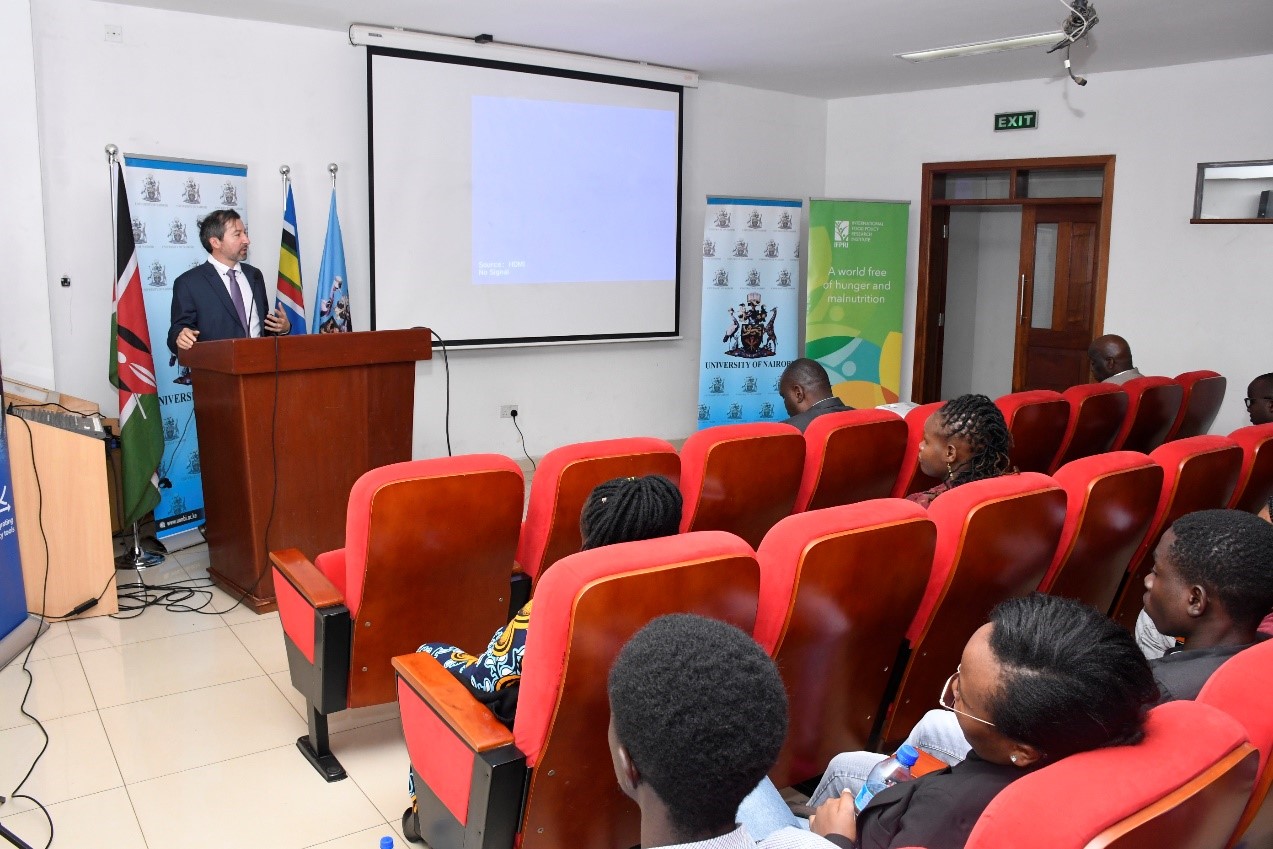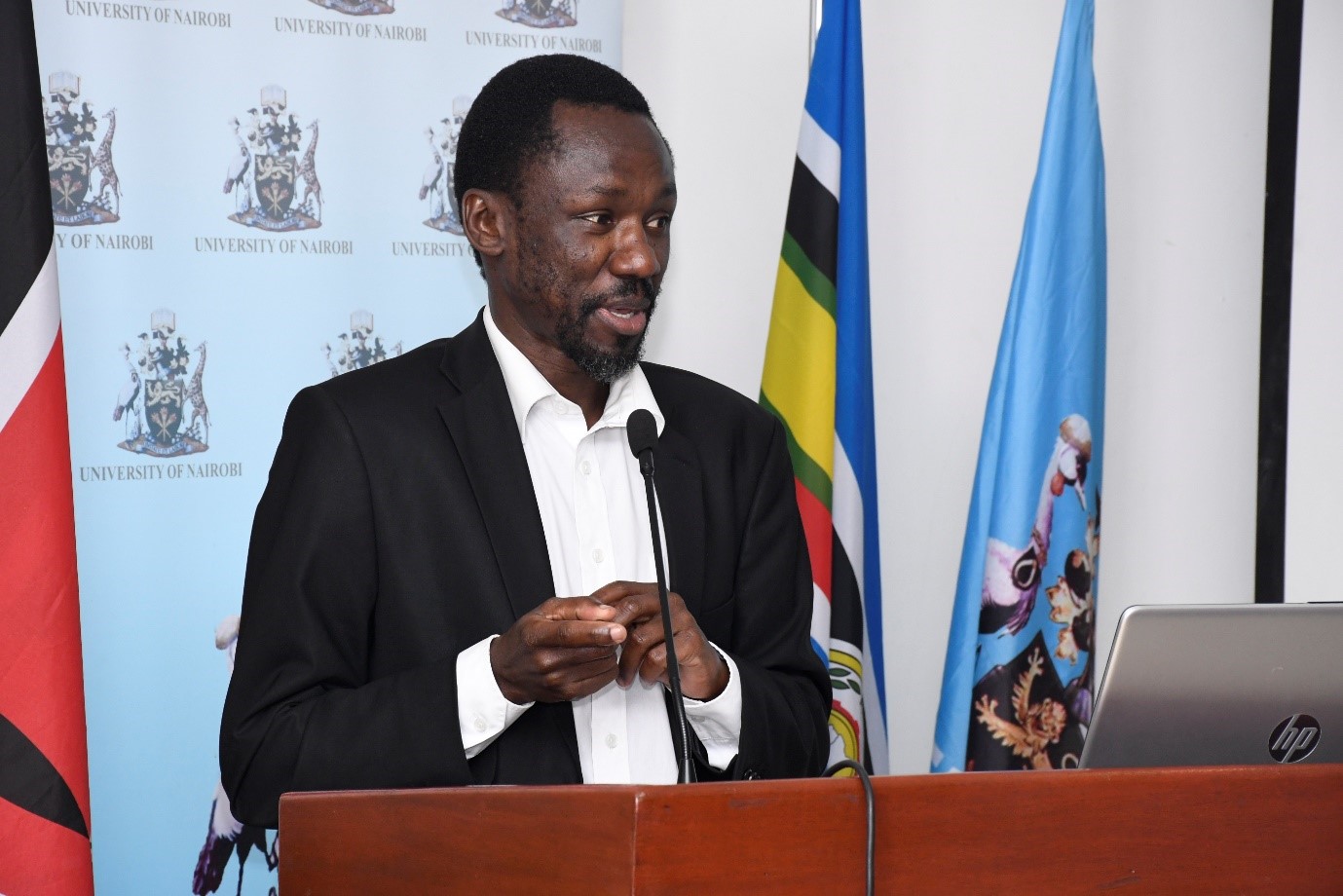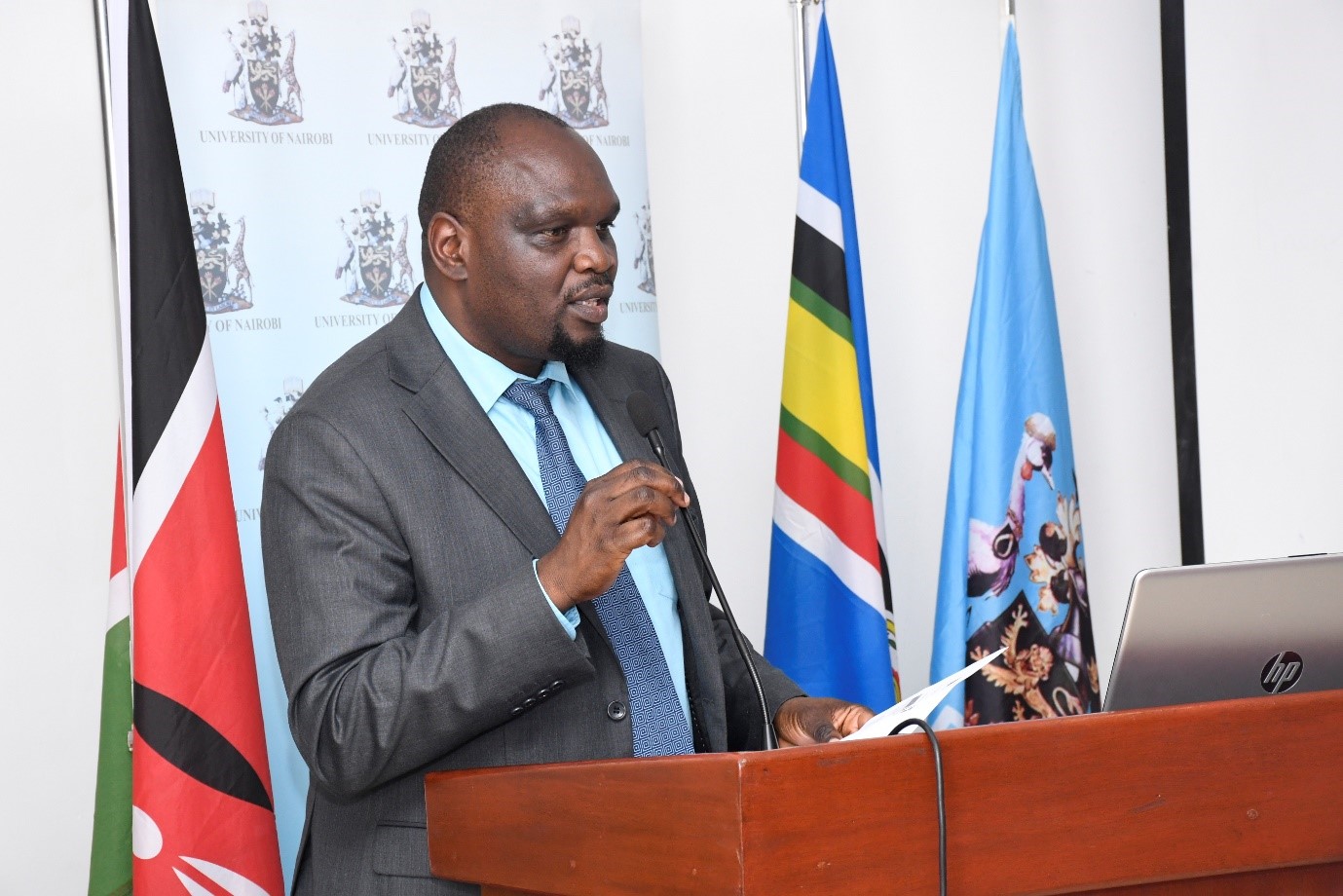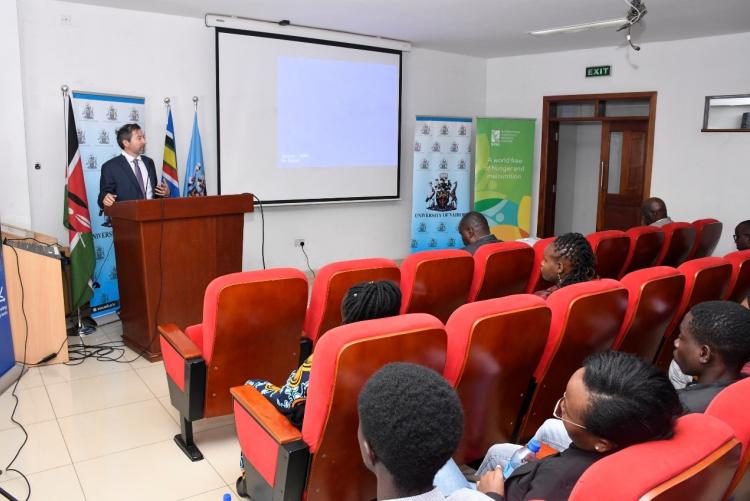Follow processing at youtube https://youtube.com/live/t2O3VvdfprE?feature=share
In 2022, the world experienced disruptions in the global food systems mainly driven by an array of challenges, including war, COVID-19 pandemic, extreme weather events, mass migration, and political instability and pointing to these overlapping crises as the “new normal” for global food systems. In as much as the global development progress made over the past decades had started slowing even before epidemic unfolded in early 2020, the crises have reversed the progress, eventually putting an end to the success made in reducing poverty, hunger, and malnutrition. The number of people facing crisis level acute food insecurity or worse has more than doubled since 2016, with expected increase up to 205.1 million in 45 countries/ territories by 2022. The Ukraine-Russia war has further exacerbated a three dimensional crisis-food, energy and finance thereby contributing to devastating impacts on the world’s most vulnerable people, countries and economies. Global food and fertilizer prices have reached historical high, and domestic price inflation remains detrimental in many low- and middle-income countries. Kenya being a lower middle-income country, has not been spared either. International Food Policy Research Institute (IFPRI)’s modelling study focusing on Kenya suggests that higher prices particularly for fertilizer reduced GDP growth and increase poverty rates in the country, putting an estimated 1.4 million additional people below poverty line.

Following the release of IFPRI’s 2023 Global Food Policy Report titled “rethinking food crisis responses”, a subsequent Kenya’s launch of the report in Nairobi opened up discussions of key findings and recommendations in the report at global and regional level. A presentation highlighting impact of rising commodities prices driven by the Russia-Ukraine crisis, and Kenya’s Bottom-Up economic Transformation Agenda(BETA) likely impacts on development outcomes were made. While reflecting on the report, the discussion in Kenya emphasised the fact that frequency of the crises is likely to increase as evidenced by existing data. “Africa as a continent, suffers vulnerability towards food crisis” said Kwame Owino, Chief Executive Officer (CEO), Institute of Economic Affairs (IEA), adding that food insecurity is equally unemployment problem therefore a need for reconsideration of Kenya’s social safety nets during and after crises.

2023 Global Food Policy provides set of evidence backed policy recommendations, interventions, and tools to address the “new normal” given the multiple shocks. A reflection then is how to reach policy makers, private sector, and development community heed calls for more proactive and long-term responses to food systems shocks. A suggestion to strengthen science-policy interface was highlighted as an answer to facilitate a more coordinated approach to crisis prediction and preparation; building food system resilience before and during crises; and making crisis response supportive and inclusive of women, forced migrants, and other vulnerable groups. (Kenya Science-Policy Interface brings together national and county government representatives, private sector, and national and international research institutes).
During the discussion, also raised was the challenge around gaps in gender and youth disaggregated data-for well targeting interventions, the discussion highlighted the fact that Kenya-and Africa at large- is relatively youthful. Therefore, youths and women involvement in the food system is important and so is the need to address their specific challenges and related interventions. This requires disaggregation of data with gender and youth lenses.

While addressing the forum, Dr. Joseph Onjala, Senior Lecturer, Department of Economics and Development Studies, University of Nairobi brought up the need to address existing systemic challenges within Kenya and East Africa, for instance, he pointed to the challenges of moving food from food surplus areas/regions to food deficit areas within the country and across the East Africa borders. He recommended a re-examining of regional common market custom arrangement / systems to address cross border transit bottlenecks. The issues of low land and water productivity commonly faced, not only in Kenya but across East Africa Community, was brought up in the discussion and a call to reconsider agriculture policy framework to address the glaring yield gap. For example, integrating precision irrigation to address the heavy reliance on rain fed farming would create resilience in food production.
Also discussed were pertinent challenges around post-harvest management systems such as transport and proper storage and food wastage. It was noted that “within Kenya, some areas experienced food surplus which end up wasted while other areas suffer acute food deficiency”.
In conclusion, to address the multiple, complex, and overlapping crises, pointed out was the need to have a wholistic systemic approach in addressing the existing institutional bottlenecks and better align our frameworks to responding to the food crisis that we face.
- Log in to post comments

